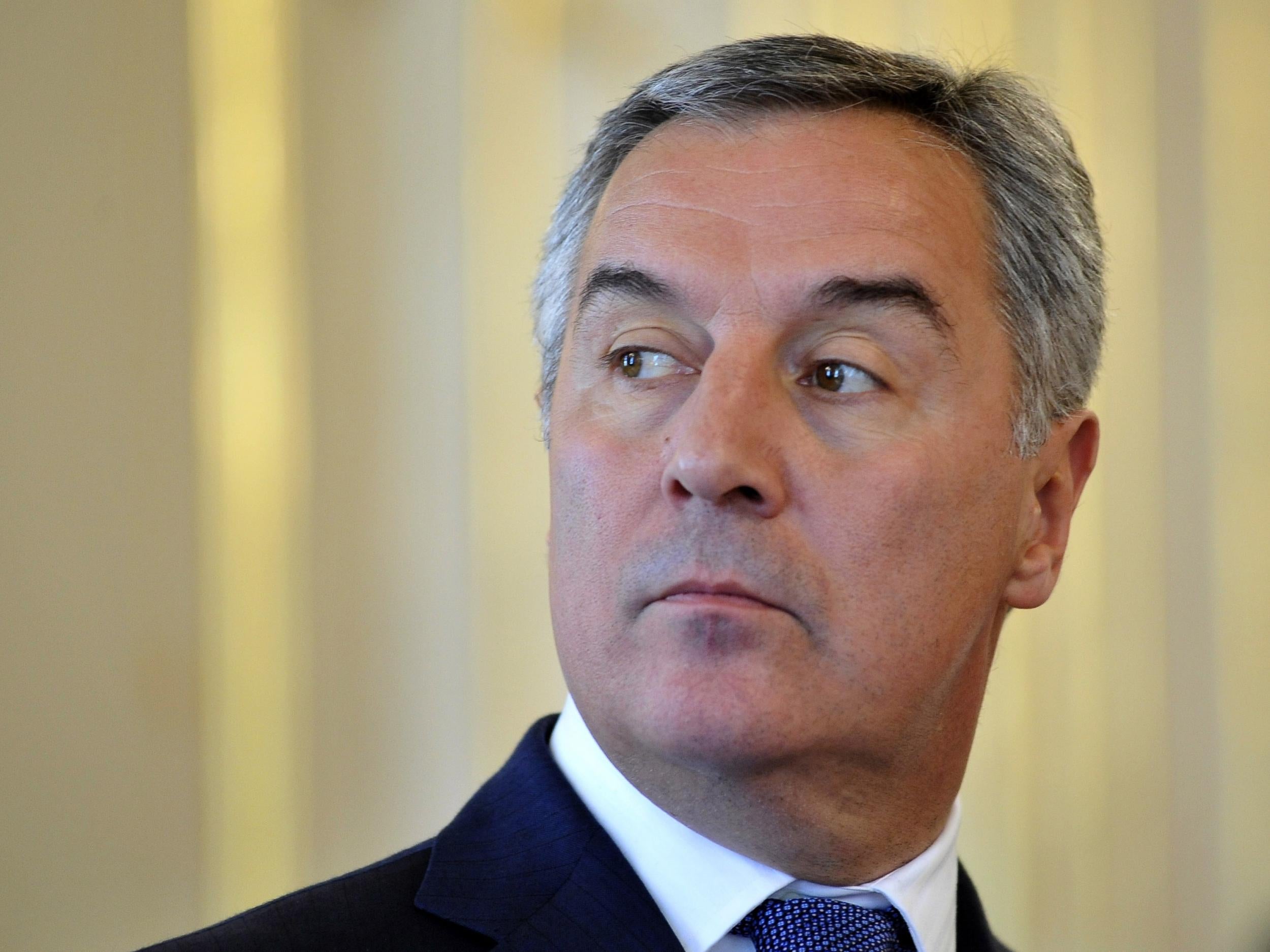Russians accused of organising plot to assassinate a European leader
The organisers of the alleged coup plot planned to 'cause violence […] and hire professional sharpshooters to kill the Prime Minister,' says Montenegro's chief special prosecutor

Your support helps us to tell the story
From reproductive rights to climate change to Big Tech, The Independent is on the ground when the story is developing. Whether it's investigating the financials of Elon Musk's pro-Trump PAC or producing our latest documentary, 'The A Word', which shines a light on the American women fighting for reproductive rights, we know how important it is to parse out the facts from the messaging.
At such a critical moment in US history, we need reporters on the ground. Your donation allows us to keep sending journalists to speak to both sides of the story.
The Independent is trusted by Americans across the entire political spectrum. And unlike many other quality news outlets, we choose not to lock Americans out of our reporting and analysis with paywalls. We believe quality journalism should be available to everyone, paid for by those who can afford it.
Your support makes all the difference.Russian nationalists were behind a plot to assassinate the Prime Minister of Montenegro, the country’s chief special prosecutor has claimed.
Milivoje Katnic told reporters a criminal group organised by “nationalists from Russia” planned to break into Montenegro’s Parliament during elections held on 16 October.
They aimed to kill Prime Minister Milo Djukanovic – who is leading the country towards Nato membership – and bring a pro-Russian coalition to power, he said.
Mr Katnic, the Balkan country’s special prosecutor for organised crime and corruption, said the alleged coup plot was for 500 people to enter Montenegro on election night to “cause violence […] and hire professional sharpshooters to kill the Prime Minister.”
“The organisers are Russian nationalists. The aim was to stop Montenegro on its Euro-Atlantic path and in particular joining Nato,” Mr Katnic said.
“We don't have any evidence that the state of Russia is involved in any sense [...] but we have evidence that two nationalists from Russia were organisers,” he said.
Mr Katnic said two Russian nationals allegedly involved in the attempted coup were still at large and that Montenegro would continue co-operating with Russia in its investigation.
Montenegro has been invited to join Nato despite strong opposition from its traditional Slavic ally Russia.
If Montenegro joins the Western military alliance, Russia would lose strategic access to the Adriatic Sea and Serbia would remain its only ally in the region.
Nato's Deputy Secretary-General Rose Gottemoeller, who visited Montenegro last week, said she expects the country to become a member next spring after all 28 Nato member states ratify the agreement in their respective parliaments.
Some 20 Serbian and Montenegrin citizens, including a former commander of Serbia's special police forces, were arrested in Montenegro during last month’s election.
Fourteen of them remain in custody, including some who have fought for pro-Russia rebels in eastern Ukraine.
Russian officials have denied any involvement, but have openly supported the “patriotic” parties that are against Montenegro's Nato membership bid.
Serbian authorities reportedly deported an unspecified number of Russian operatives who were monitoring Mr Djukanovic's movements from Serbian territory.
“Special prosecution of Serbia had those persons under its supervision [...] and prevented them from realizing their plan,” Mr Katnic said.
“Those persons are not on the territory of Serbia any more. I don't know where they are now, in Russia or somewhere else.”
Mr Djukanovic's party topped the polls in October but he himself is stepping down and his deputy Dusko Markovic has been chosen to form the new government.
Additional reporting from agencies
Join our commenting forum
Join thought-provoking conversations, follow other Independent readers and see their replies
Comments